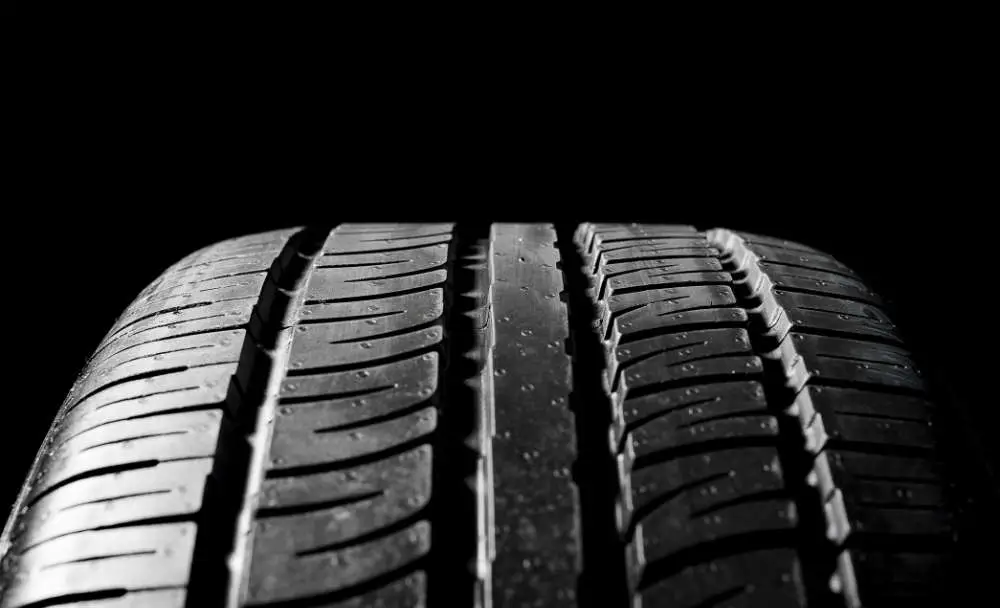Checking how long your tires last is a sign of taking good care of your beloved Porsche Cayenne.
The approximate life expectancy of the tires can vary, of course.
That is because not everyone drives their car the same, and there are a few other reasons like the condition of the roads you’re taking, which tires you have, etc.
But, the general advice is to change your Porsche Cayenne tires every 50,000 miles.
In this article, you will find out about the factors that have an impact on the lifespan of your tires. So let’s get right into it!
Advertising links are marked with *. We receive a small commission on sales, nothing changes for you.
What Does The Service Life Depend On?

As we said above, several factors will have an impact on the lifespan of the tires.
But, you can ask your mechanic or someone at the dealership – yet, nobody will give you a proper, correct answer.
So, let’s have a look at the most important factors!
By the way, remember that your tires are under a lot of stress whether you race at high speeds or even use your car for a regular drive.
To ensure that your tires endure a long time, you must properly maintain them. Therefore, you should routinely check your tires’ pressure, wear, and depth.
First Factor: Tire Type
Okay, the first thing to know here is that you can have softer or harder tires. Softer tires will provide you with more grip on the pavement.
The negative thing about that is that because of the increased friction on the road surface – softer tires deteriorate more quickly.
So, if you want to be on the “safe” side, maybe opt for harder tires, like all-season models, instead of high-performance tires.
Second Factor: Rating Of The Treadwear
The relative score assigned to a tire as a gauge of tire longevity is called the treadwear rating.
It is not a forecasted estimate of the tread life or mileage.
Instead, tire wear under carefully monitored driving circumstances is measured against a reference tire with a score of 100 to establish treadwear scores, which are expressed quantitatively.
Treadwear ratings for various tires vary. But, basically, the tire will last longer the higher the rating.
Remember that 2/32 of an inch (approximately 1.6mm) is the minimum.
This does not imply that 3/32 tires’ treads are entirely secure.
Simply put, this is the point at which your state safety inspection will fail. In addition, as the tread on your tires wears down, they become progressively less safe.
Third Factor: Drivetrain Of The Car
Where the power from the engine is dispersed in your car depends on the drivetrain, of course.
Therefore, if just one wheel or tire receives power, that tire will wear out faster than the three non-drive tires.
Fourth Factor: Condition On A Road You’re Driving On
Compared to a neatly paved driving surface, gravel and dirt roads typically cause tires to wear out faster.
Additionally, you should expect your tires to lose their tread quicker than the typical mileage life span may suggest if you go off-road.
We all know that potholes are one of the most obvious hazards.
Whenever possible, you should try to avoid them, but occasionally you might not see them straight away, in which case swerving to avoid them could be dangerous.
In addition, your tire might sustain significant damage due to the angle and pace at which you strike the pothole.
In cold weather, proper tire maintenance is crucial.
Consider switching to winter tires if you reside in an area with heavy winter precipitation or ice.
An excessive amount of ice can make your automobile slick and wear down your tires significantly.
Additionally, road salt can damage your rims.
Therefore, winter tires do need to be replaced during the summer. Although winter tires are more expensive and have more flexible treads to handle snow better, the heated pavement will soon degrade these costly tires.
Fifth Factor: Your Driving Habits
Your tires’ lifespan will be prolonged by applying slow, steady pressure to the accelerator and braking pedals.
Of course, your tires’ surface will wear down significantly more quickly from quick starts and stops.
Additionally, your tires lose a substantial amount of life when you burn out from a stop. So, it’s better to be careful and steady with your metal pet!
What Are The Best Tires For The Porsche Cayenne?
Now that you know what damages your tires, you can check out the best tires for your Porsche Cayenne. Only the best for your favorite car!
Choice One: Pirelli Scorpion A/T All-Terrain
Tires are perfect for off-road and highway driving in all weather situations, including snow and chilly climes.
In the worst situations, Pirelli’s Scorpion off-road tire performs well.
The new aggressive tread design offers a performance ratio of 40% on-road and 60% off-road.
The high-density siping ensures traction for safety and performance, while the longitudinal grooves ensure good water expulsion.
Price: from $141.50
Choice Two: Continental 4X4 Contact and Pirelli Scorpion Zero
These tires are made for usage on highways in all types of weather, including snow and icy situations.
Both of them are situated for SUVs and 4×4 vehicles. Also, Scorpion has excellent Summer High-Performance tires, but Continental provides great All-Season Touring tires.
Prices:
Continental 4X4 Contact: $78.35 – $265.96
Pirelli Scorpion Zero: from $181.80
Choice Three: Bridgestone Turanza
These tires offer the ideal blend of performance and riding comfort for summer highway conditions.
In both dry and rainy circumstances, Bridgestone Turanza tires deliver a quiet, comfortable, and dependable ride by absorbing road noise.
Price: from $195.99
Choice Four: Continental 4X4 SportContact/Michelin 4×4 Diamaris/Pirelli PZero Rosso
The last choice is tires designed to handle like a sports vehicle in both rainy and dry summer weather.
So set them up if you live in a wintery area and have a lot of snow during the year.
Prices:
Continental 4X4 SportContact: from $285
Michelin 4×4 Diamaris: $215 – $405
Pirelli PZero Rosso: $330.90
Tips For Protecting Tires
Here are the top three tips for prolonging the lifespan of your car tires.
Tip Number One: Visit Services for Regular Tire Rotation
While steering, your front tires frequently experience increased road friction. The purpose of routine tire rotations is to keep your tires safe.
You can distribute this extra wear evenly by rotating your tires regularly, which keeps your tires intact as a set.
Tip Number Two: Keep The Right Tire Pressure
Tire pressure is one of tire protection’s most essential and easily disturbing factors.
Temperature, road conditions, and other factors can all affect tire pressure.
Overinflated tires can alter how they interact with the road, frequently pushing the center of the tire outward more than usual.
Tire wear will be increased and uneven as a result. In addition, your tire may blow out with high tire pressure.
When your tires are under-inflated, more of their surface area contacts the ground, which increases the risk of sidewall damage and tread decline.
Tip Number Three: Visit Services for Tire Balancing
Your tires will rotate more quickly than they should when one or more are out of balance.
The out-of-balance tire or tires will wear out more quickly than your other tires while remaining safe.
Fortunately, tire balancing services can easily and quickly restore your tire protection.
However, just as with tire alignment, you must have this repair performed before the harm has already been done.
Conclusion
Keeping your tires “healthy” and “happy” doesn’t have to be such a job.
The tires support the entire car, so invest in them and don’t forget to take care of them during challenging road conditions. Cheers!

Luna Meschiari is a full-blooded car nut who is well known to local garages, as each article is meticulously researched and peppered with the latest piece of information. Guess what car she’s driving right now? A RAV4 2021 Hybrid. But her heart also sleeps for pickups like the F-150. Get to know Luna better on the about us page.
Advertising links are marked with *. We receive a small commission on sales, nothing changes for you.
